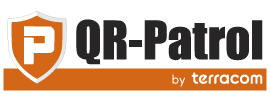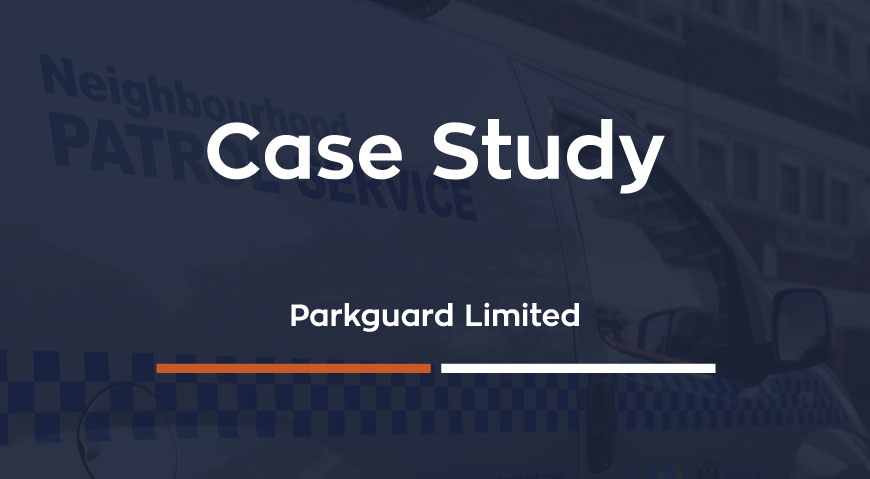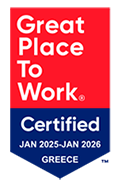- Posted by: blignos
- Published: 06-10-2022
- Category: Case Studies
Parkguard Limited Case Study
“QR-Patrol is an innovative cloud-based system that has completely changed the way we manage and evidence our patrols for the better”
Nick Billington – Fleet & Operational Support Manager
Parkguard Limited is a service provider to Local Authorities and Police in the United Kingdom. They design, implement and deliver a wide range of community safety services, either as a stand-a-lone or jointly delivered in partnership with various statutory services.
The company aims to:
 Support the Local Authority and Police through information and intelligence gathering, to enable wider action and jointly achieve longer term solutions to community issues.
Support the Local Authority and Police through information and intelligence gathering, to enable wider action and jointly achieve longer term solutions to community issues. Reduce the impacts of anti-social behavior, public nuisance and crime through collaborative action and facilitating early intervention and prevention activities.
Reduce the impacts of anti-social behavior, public nuisance and crime through collaborative action and facilitating early intervention and prevention activities. Provide targeted activities to detect, deter and disrupt crime and disorder and reduce offending through education combined with enforcement.
Provide targeted activities to detect, deter and disrupt crime and disorder and reduce offending through education combined with enforcement. Help make our patrol areas even safer by providing a tangible area resource for the Police and Local Authority.
Help make our patrol areas even safer by providing a tangible area resource for the Police and Local Authority. Deliver services that hold public confidence and provide open and equal access to all within the communities in which we work.
Deliver services that hold public confidence and provide open and equal access to all within the communities in which we work.
Before
Prior to moving to QR-Patrol, Parkguard was using a local, traditional guard tour management system. Their guards were patrolling around carrying wands, scanning RFID tags and then all this data was being transferred to a laptop. At the end of the day, all the company had available was an excel sheet including a vast amount of data, hard to read and even harder to turn into insights. “It’s not about the excel file and the data, it’s about what to do with them, how to turn them into insights and how we can emphasize on improving the quality of our services” Nick Billington (Fleet & Operational Support Manager).
They were clear on what they were aiming for: “We want to provide the best services in London, we are the best at what we do” Nick Billington.
Just before 01:00 on 14 June 2017, a fire broke out at Grenfell Tower, concluding to be one of the UK’s worst modern disasters. Within minutes, the fire had spread to the exterior of the building and then to all sides. During the period following the disaster, more and more attention was given to proactive measurements about security and fire protection, leading public and private companies and organizations to upgrade their services and their adaptability to such cases.
The need
Being affected by the disaster and their principle of being the best at what they do, the Company’s managers agreed on the fact that they need to find a flexible, easy and efficient way to gather proof that the necessary actions are being performed by the guards in the field, but in real time. Also, it was obvious that locating any pain points on time could:
- 1 save the company man-hours,
- 2 create a healthy working environment for both managers and guards filled with confidence
- 3 eliminate any risk patterns
- 4 lead the company to be proactive
Until the last time, they were about to move on with their previous solution, but they thought that what will bring real value and upgrade to their operations would be something to migrate from a manual to a digital workflow, leading them to QR-Patrol cloud-based solution.
The solution
Its cloud based, real time nature, multiple advanced reporting options and automated schedules for the employees to follow 24/7 led Jean-Pierre Rossouw (Operations Director) to create a whole digital plan for their operations.
The system was implemented on large, multi-floor buildings including both indoor and outdoor facilities. The whole process was digitized very fast. The patrols were set up into the software and the guards know what they need to do during their patrols. All patrol data is being reported in real time to the system, gathered at one place. At the same time the system pulls the data to create a schedule completion report delivered to multiple recipients. There it is, the data finally were turned into insights. Proving that Parkguard was indeed able to provide the best services is not an everyday challenge anymore.
Parkguard had created a fully functional setup, including automated operations being fully transparent to their colleagues and their clients about everything happening in the field. Also, they managed to take proactive measures for the employees’ safety, creating a safe environment where the performance and the productivity would increase smoothly as a cause and result effect.
The 2 points – features Nick emphasized on are:
 The fact that they can create Schedules for their guards to follow, to automate all patrols in the field. They’ve started working smart, as the guards are being digitally and automatically notified on what they must follow and reassure that they arrive on specific spots on time.
The fact that they can create Schedules for their guards to follow, to automate all patrols in the field. They’ve started working smart, as the guards are being digitally and automatically notified on what they must follow and reassure that they arrive on specific spots on time. The Schedule completion table report added as a custom solution to their operations. Having a table showing the completion percentage of the scheduled patrols per site is the way to be fully transparent to their clients, proving their high-quality services. The report is being scheduled to be delivered automatically from QR-Patrol servers to the Clients, preventing any Company from changing the numbers. “This is what we needed, we don’t need to lie to our clients. That way they know that the report goes straight away to them and they can see our 100% completion”
The Schedule completion table report added as a custom solution to their operations. Having a table showing the completion percentage of the scheduled patrols per site is the way to be fully transparent to their clients, proving their high-quality services. The report is being scheduled to be delivered automatically from QR-Patrol servers to the Clients, preventing any Company from changing the numbers. “This is what we needed, we don’t need to lie to our clients. That way they know that the report goes straight away to them and they can see our 100% completion”
Results
In conclusion after moving on with QR-Patrol:
 They managed to save 1248 hours/year.
They managed to save 1248 hours/year. Managers and clients have a full view of what’s happening on the field in real time.
Managers and clients have a full view of what’s happening on the field in real time. Guards are proving they were in specific places on time, performing the necessary checks.
Guards are proving they were in specific places on time, performing the necessary checks. Turning data into insights is not administration heavy anymore
Turning data into insights is not administration heavy anymore The Company managed to build even stronger relationships with its clients, being 100% transparent to them, just like their performance in the field.
The Company managed to build even stronger relationships with its clients, being 100% transparent to them, just like their performance in the field. Automatically delivered reports daily, weekly or monthly consisting of the basic tool for audit purposes, thus helping to locate pain points and taking proactive, ameliorative measurements.
Automatically delivered reports daily, weekly or monthly consisting of the basic tool for audit purposes, thus helping to locate pain points and taking proactive, ameliorative measurements.

















